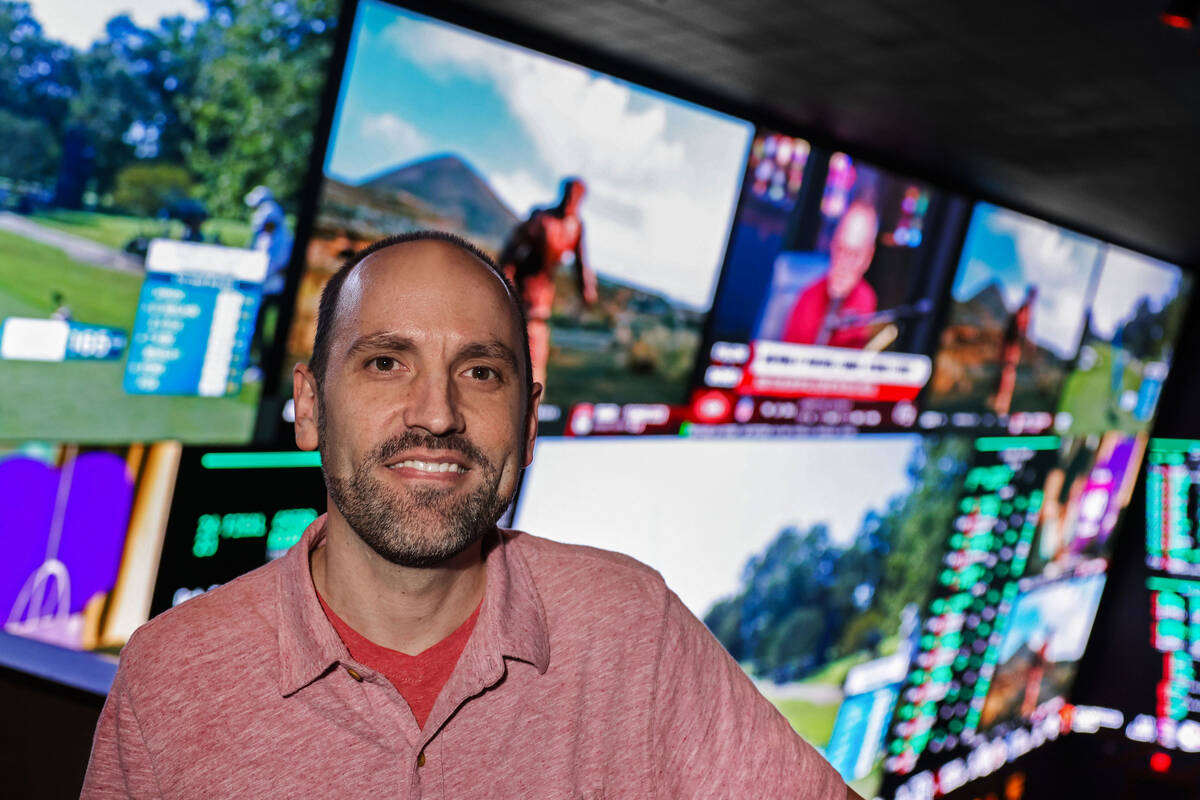Chris Bennett has spent his entire career in the sports betting industry at two of the most respected sportsbooks in Las Vegas.
A Minnesota native who attended college at the University of Illinois, Bennett worked at Westgate SuperBook for nine years before taking a four-year hiatus from the industry. He returned in 2019 to help launch Circa Sports and in 2023 succeeded Matt Metcalf as Circa sportsbook director.
In addition to Circa’s high-stakes NFL handicap contests — the $1,000-entry Survivor and Million and the $100,000-entry Grandissimo — the downtown sportsbook has made a name for itself in the sports betting world by welcoming the sharp bettors that some books shun.
Bennett recently discussed several topics during a “Think Like a Bookmaker” seminar at the Bet Bash sports betting conference at Circa. He fielded questions from Mike Palm, VP of Circa, D Las Vegas and Golden Gate, and some from the audience (Note: Answers have been edited for clarity and length).
Palm: Let’s start by giving some background, where you came from and how you got into this industry.
Bennett: I started in the business right out of college. I didn’t really have a plan for what to do with my life. I just knew I had two things I liked. I liked math, and I liked sports, and I thought if I was going to have a career that married those two things, I would have to go and work in the sports betting industry, and that meant the state of Nevada. … I got a couple of offers for positions as a ticket writer, and I accepted the first one I got, which at the time was called the Las Vegas Hilton, now known as the Westgate. … Fortunately, there were a couple of people who were the oddsmakers at the Hilton who really knew this business well, and they were able to teach me so many things about how to be a bookie and how to be an oddsmaker. I worked my way up and learned how to play this game and how to win this game.
I left the industry for a few years after I left Hilton. I received a few phone calls from my former co-worker and friend Matt Metcalf, who I had worked with at the Hilton. Matt got the job as sportsbook manager at Circa and needed to build a team. I was in Minnesota and had a completely different job and career at the time. I was sort of looking for a way out. This was serendipity as far as I was concerned. … I would say this is where I’ve been at my professional best in my life. I’m 43 years old now, I’ve been here for six years, and I can’t imagine another industry I’d rather be in.
Palm: You’ve talked about as a bookie, you always play defense. Can you explain that philosophy?
Bennett: I think of betting and bookmaking as two sides of the same coin. The player and the bookmaker are playing the same game. The player plays offensively. Bookman plays defense. The other thing about playing defense is that I have to invest in both sides of every game all the time. It might sound easy because I have -110 on both sides or whatever the implied house edge is. But in practice it’s really tough because the player playing offense doesn’t have to make a bet. They can just choose their seat and they can wait. … The player has to overcome the inherent house advantage, but I think it’s a very fair game on both sides for the most part, and that’s what makes it interesting, and that’s what makes it fun. … When you play defense, there is no off button. There is some sporting event that takes place every day of the year.
Palm: You talked about the importance of profiling players. I think there is a misnomer in the statement that Circa Sports never limits anyone because we have different limits. … What is something a customer can do that would cause them to be moved down a level?
Bennett: For any sportsbook operator to say they don’t limit winners or they don’t limit anyone is just logically incorrect. There must be limits for everyone. No one can walk into any sportsbook and bet an unlimited amount of money on whatever they want on the field. … To get lower limits, betting on a market that is left open after it should be closed would be a thing that is unfounded and would lead to the introduction of restrictions. Betting at the same time with other accounts in a coordinated manner would certainly reduce the limits. … When we have a number available, we want to bet on it. We don’t want to take 100 bets at once, all at the same price. … Betting on obvious mistakes — a football team is supposed to be a 20-point favorite and they’re +20 because the number has been entered backwards — is a good way to lose account privileges, too.
Palm: Which bookmakers most influenced you to where you are today and your philosophy and how you carry it out?
Bennett: I learned directly from Ed Salmons and Jeff Sherman, who work at Westgate to this day. … These are two guys who can actually make odds on their own, take bets from sharp customers, have the best odds on Super Bowl futures and all kinds of different markets, and generate revenue and win on this. … Matt Metcalf was there as well and someone I learned from and leaned on when it came to bookmaking and oddsmaking strategy.
Audience member: Is it possible to make a national rule requiring sportsbooks to take a minimum bet?
Bennett: I’m actually in favor of any minimum risk or profit amount requirement for operators, just out of principle and fairness. I don’t think this game should be playable only for the losers. Everyone should be able to play it. This is what you sign up for in sports betting. Probabilities are not mathematical certainties, and if you are smart and hardworking, you can make money from this. It just needs to fit into the overall economic reality of driving these businesses so that they can continue to operate and hopefully there can be a healthy, competitive market.
Contact reporter Todd Dewey at tdewey@ theplayerlounge.com. Follow @tdewey33 on X.





